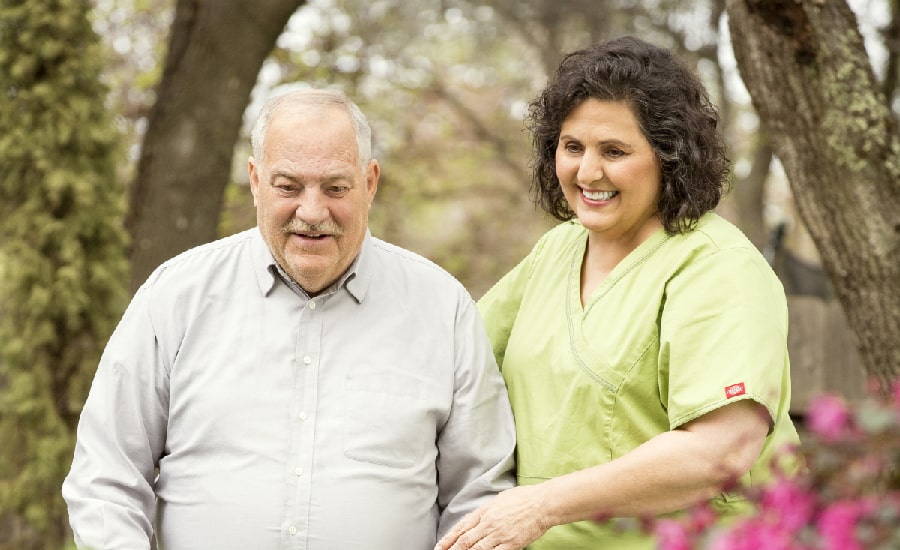Last Updated on March 25, 2025 by Tanya Janse van Rensburg
Caring for an elderly loved one can feel a bit like juggling flaming torches—except instead of fire, it's a mix of emotions, responsibilities, and love.
Whether you're stepping into a caregiver role or just want to better support your aging family members, there’s a lot to unpack.
But don’t worry, this isn’t a guilt trip. Think of it more like a guide to keeping your sanity while making sure Grandma or Grandpa feels loved and cared for.

The best way to understand what your elderly loved one needs?
Ask them. It may sound simple, but so many people skip this step. Instead of assuming they’re fine or want help in a specific way, sit down and chat.
Ask open-ended questions like:
Sure, these chats might feel like pulling teeth at first. But getting their perspective prevents you from trying to solve problems they don’t see as problems.
Plus, it shows respect for their independence—a big deal for most seniors.

When figuring out how you can help, it’s useful to divide their needs into key categories.
Think of this like creating a checklist, but instead of bread and eggs, it’s about safety and healthcare. Here are the main areas to consider:
Do they have any chronic illnesses or health conditions? Are they keeping up with doctor’s appointments, medications, or physical therapy?
If the medical world feels like a foreign language to you, a simple spreadsheet can help keep track.
Always keep senior mobility in mind. Can they move around their space without feeling like they’re training for American Ninja Warrior?
Look for tripping hazards, install grab bars, and maybe rethink that impossible-to-open jar of pickles stored on the top shelf.
Cooking, cleaning, grocery shopping, and managing bills—some seniors handle these like pros. Others might need help.
Pay attention to small clues, like uneaten food in the fridge or unpaid bills piling up.
It’s easy to focus on the physical stuff and forget emotional health. Loneliness is a sneaky little creature that loves to make senior lives harder.
Regular phone calls, visits, or introducing them to hobbies or community groups can work wonders.
Once you’ve evaluated the basics, you have a clearer idea of where things stand.
Think of it as getting a bird’s-eye view: you can’t help if you don’t know the full picture.
Sidekicks are almost just as important as superheroes. Taking care of someone else is a team effort rather than a one-person endeavor.
Particularly if you have children, a job, or a life of your own, you do not have to assume every duty.
Your caregiving team should be built like this:
Pro Tip: Keep everyone on the same page with linked calendars or apps.

Here’s the tricky part: helping someone without making them feel like they’ve lost all control.
Think of yourself as a backup dancer, not the star of the show. You’re there to catch them when they slip, not to take over every decision.
Some tips to balance independence and support:
Let’s get one thing straight: you cannot pour from an empty cup. If you’re burnt out, you’ll be no good to your loved one or yourself.
Caregiving can be emotionally draining, and it’s okay to admit you need a break. Scratch that—it’s necessary.
What self-care looks like:
Remember, taking care of yourself isn’t indulgent. It’s how you keep the caregiving train on the tracks.

Sometimes, what your loved one needs is beyond what you can offer.
And that’s okay! Whether it’s hiring an in-home nurse or exploring long-term care facilities, professional help exists for a reason.
Signs it might be time to call in the experts:
Reaching out for professional care doesn’t mean you’re failing. It means you’re ensuring they get the best support possible.
At the end of the day, caregiving isn’t just about crossing items off a to-do list. It’s about connection.
Take the time to enjoy a meal together, hear a story from their youth, or share a laugh over something silly. These moments matter more than any chore ever will.
And remember, no one’s expecting perfection. You’re already doing something incredible by showing up and trying your best.
Caring for an elderly loved one can be a rollercoaster, but it’s also a chance to strengthen bonds and create lasting memories.
With open communication, a clear plan, and a healthy dose of self-care, you can navigate this chapter with a full heart (and maybe a few laughs along the way).

Focus on connection. Share stories, meals, and laughs—it’s the small moments that mean the most.